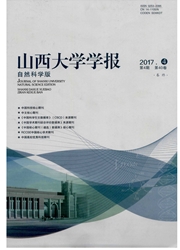

 中文摘要:
中文摘要:
研究了双酚A(BPA)对肝癌细胞HepG2增殖的影响及其分子机制。通过MTT实验发现,在环境浓度BPA(1×10^-8 mol/L)暴露下,人肝癌HepG2细胞增殖显著升高[(156±2.48)%]。Western blotting和实时定量PCR结果显示,环境浓度的BPA处理HepG2细胞24h,细胞中NF-κB以及其下游相关炎症因子IL-1β、TNF-α的转录均明显上调。免疫荧光染色结果显示,BPA处理导致HepG2细胞内ROS显著上升;而ROS抑制剂NAC及雌激素受体抑制剂ICI 182 780均可有效抑制由BPA引起的细胞增殖和胞内p65上升。研究结果表明,BPA通过激活HepG2细胞中的雌激素受体诱导了细胞ROS的产生,随后引起细胞内炎症因子表达上调,促进细胞增殖。
 英文摘要:
英文摘要:
Bisphenol A(BPA), as a widely used compound to make certain plastics and epoxy resins, exhibits hormone-like properties that raise concerns about its suitability in some consumer products and food containers. The effects of BPA on the proliferation of hepatoma cancer ceils HepG2 were studied. The molecular mechanism of how BPA caused proliferation remains unknown and needs to be elucidated. Furthermore, there is limited insight about the connection between estrogen receptor (ER) and BPA-induced heparoma cells proliferation. BPA exposure induced the notable increased mRNA expression of inflammation cytokines in HepG2 cells in a time-and dose-dependent manner. Additionally, BPA exposure resulted in both the activation of ER and ROS up-regulated, with a subsequent activation of p65. Interestingly, ROS inhibitor (NAC) could apparently inhibit NF-κB p65 induced by BPA. Remarkably,the up-regulated expressions of inflammation cytokines were attenuated by the addition of NAC or NF-κB inhibitor (BAY). Meanwhile, ER inhibitor (ICI) had the same efficacy. The results indicated that BPA induces the pro-inflammatory responses of HepG2 cells via ER and ROS mediated NF-κB activation.
 同期刊论文项目
同期刊论文项目
 同项目期刊论文
同项目期刊论文
 期刊信息
期刊信息
